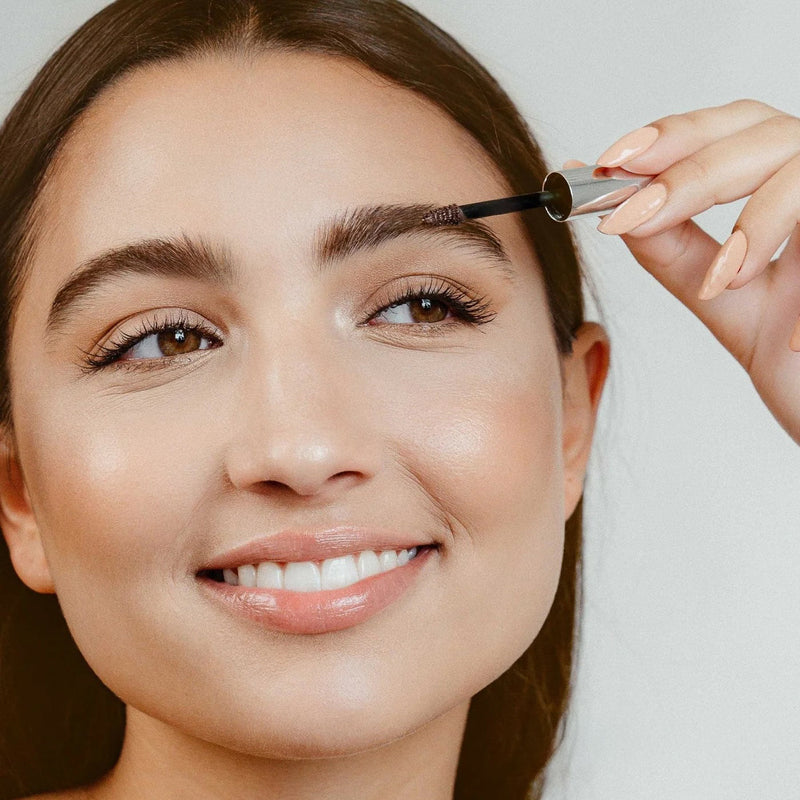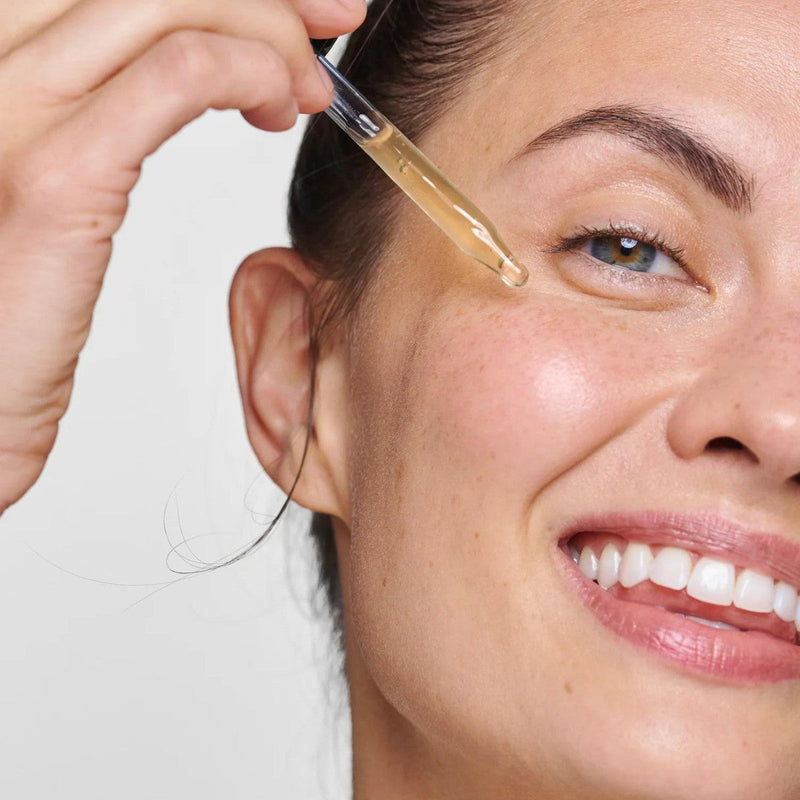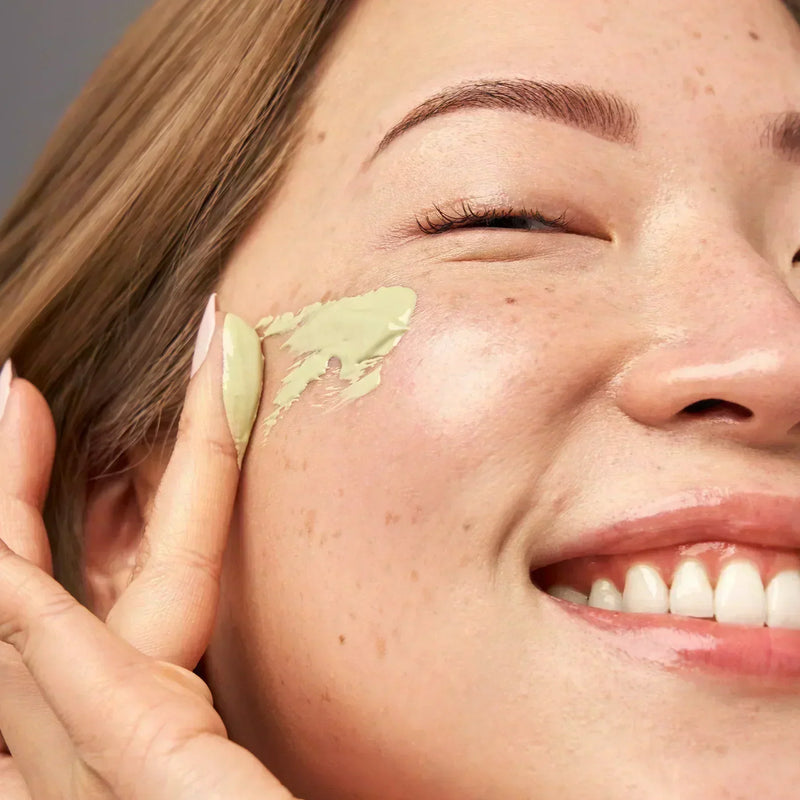So often, we focus on what ingredients shouldn’t be in a personal care product, or “red flags” if you will. But, what green flags, in terms of marketing claims and ingredients, should we be looking for when choosing a new natural beauty item? When working with our community, we've noticed that many customers come to us not knowing some of the true definitions of popular terms in the green beauty world. And while many of these terms are unregulated, it is still important to understand them. Our vetting process to curate our selection of natural cosmetics and skin care consists of many layers. And most likely, the reason why you are a part of our community, is because we do that vetting for you. It saves you time, and allows you to shop the very best in green beauty that you can easily trust. However, while we may be the main source for your healthy beauty needs, we also know that many of you pick up products at other local shops and health food stores. We recognize this, and feel that it is important for us to provide you with insight into the world of green beauty. We want you to be able to choose the safest products for you and your family. The beauty industry (green or not) is largely an unregulated body. Because of this, we hope to make a mini army of GK Experts who have the ability to choose natural beauty products that are right for them.
Breaking Down Natural Cosmetic Buzzwords
We’ve compiled a list of 9 "green flags”, or marketing claims, to look for when picking out a new natural cosmetic product. We've also given you a break down of what they mean in simple language that makes sense.
The Green Kiss Healthy Beauty Dictionary
1. What Does “Non-Toxic” Really Mean in Cosmetics?
Although unregulated, the term non-toxic is meant to signify that the ingredients formulated into a product do not include anything (including sub-components that can go unlisted) that is potentially harmful to humans. This means that the ingredients aren’t known to irritate or cause allergic reactions, or have cancer-causing, or hormone-disrupting chemicals. You need to watch this one, as due to the fact that it isn’t regulated, companies can use it to “green-wash”. So still be sure to read through the ingredients list of the product.
2. Why “Phthalate-Free” Matters for Your Health
Phthalates are a nasty little group of ingredients that are called plasticizers. This is a fancy way of saying that they act as a way to make plastic more flexible. Why is this in cosmetics? Typically to make a synthetic fragrance stick to your skin longer. The harmful side effects of these ingredients are that they have been linked to birth defects, other reproductive harm, and cancer. They mess with your endocrine system. A phthalate-free product would be one that is formulated without synthetic fragrance. The stipulation here is that the synthetic fragrance listed could or could not contain phthalates. Conventional beauty companies don’t legally have to disclose the list of ingredients contained in a synthetic fragrance. We figure it’s best to just avoid them completely as a precautionary measure! This is why our entire assortment of personal care products at The Green Kiss are artificial fragrance-free, and therefore free of phthalates. If you are really concerned about this ingredient, also be mindful of other consumer products such as furniture, shower curtains, and fast food packaging that can have this chemical in it. To learn more about that, check out this info page from the Californian Government.
3. What to Know About “Organic” Beauty Products
When looking for organic beauty products, there is a wide range of what being “organic,” fully signifies. The organic industry is largely unregulated and many of the small companies we know and love are actually organic but can’t afford to undergo the labeling process to make them a certified USDA organic product. There are also varying percentages of how many ingredients have to be organic in a product to qualify it for being an organic product as a whole. The key here is to look for the * sign as that is usually linked to outline which ingredients in a product are organic or not.
4. USDA Certified Organic: Is It Worth It?
When a product has a label from the USDA organic governing body it means the company has been regulated and given the stamp of approval by the USDA. This means that the ingredients included in the formulation are organic and that the company itself has also gone through the process to get them certified. We believe that products need to be natural and free of known toxins. That is our #1 priority here at The Green Kiss. We do not believe that products need to be certified organic to be “good” for you. However USDA certified organic products, especially if you are shopping in a health food store, or grocery store for some basic body care products, are a fairly sure-fire way of knowing that you are buying is actually natural. Curious how the certification process works and how things get labeled with the USDA organic sticker? It’s a little complicated. Go here to find out more.
5. Vegan Makeup Explained: What’s In and What’s Out
This means a product has no animal products or byproducts contained in its formulation. When a product is vegan it doesn’t contain honey, beeswax, silk, carmine, MSM, DMAE, or any ingredient derived from an animal (squalane oil and hyaluronic acid, for example, are two ingredients that can come from animals, which do not have to be listed as such on a bottle. This also pertains to makeup brushes, as many are made out of animal hair. We of course do not sell any products with squalane or hyaluronic from animal sources (that animal would die), and our entire selection of makeup brushes are vegan (all synthetic bristles). However, we DO allow some beeswax and honey in a few of our products, as well as some Marine Collagen. We sit at about 95% vegan products in the shop.
6. What “Non-GMO” Means for Your Skincare
Genetically Modified Ingredients or GMO’s are not just relevant in science class or what food is on your plate but also within your skincare. There is a lot of controversy around GMO’s but whatever your take on it we figure it’s better to be informed when its present in a product that is being used on your body. When an ingredient is Non-GMO it means that is was not grown in a genetically modified way. Plants, animals or other organisms can be altered in a lab through genetic engineering to become a crossbreed that wouldn’t naturally occur in nature. When something is non-GMO it means that it is an ingredient that hasn’t been tampered with in this way.
7. Biodegradable Beauty: What It Is and Why It Counts
These are formulas that use ingredients that will eventually break down back into their natural state through environmental factors or through organisms that naturally assist that process. This is incredibly important when looking for sustainable products and if you are concerned about the environmental impact of the products you are using. What you apply to your body, eventually gets washed down your drain, and biodegradable, or degradable formulas even, are NOT the norm in the beauty industry. This is a major buying guideline for us here at The Green Kiss, and 100% of the ingredients contained in the products we carry in our shop are biodegradable, OR "degradable" (when it comes to the silicone that we allow in some of our mineral sunscreen formulas).
8. What Is Leaping Bunny Certification?
Governed by an international body, Leaping Bunny Certification is focused on a concrete set of guidelines that an entire company and the products they carry have to go through. They call this their “Corporate Standard of Compassion for Animals.” The ingredients in the formulation along with any ingredients purchased from a third-party manufacturer all cannot have used animal testing. A complete set of guidelines can be found here.
9. Decoding Natural Constituents of Essential Oils
These ingredients pop up all the time in natural and non-toxic skincare products and we get questions from our customers asking us what these random ingredients are! Natural Constituents of Essential Oils are basically the natural chemical building blocks that make up an essential oil. Some of the most common ones in natural skincare and cosmetics are Linalool and Limonene.
Our Takeaway: Green Beauty, Decoded
After breaking down these commonly misunderstood natural cosmetic terms, one thing is clear: knowledge is your greatest beauty tool. Many of the marketing claims used in the green beauty world, like "non-toxic," "vegan," or "biodegradable" are not tightly regulated, making it essential for you to look beyond the label. We’ve learned that while buzzwords can be helpful indicators, they should never replace an informed reading of ingredients and a deeper understanding of what those claims actually mean.
At The Green Kiss, we do the homework so you don’t have to, but we also want to empower you. Whether you’re shopping with us or picking up a moisturizer at your local co-op, you now have the insight to make safer, smarter decisions for yourself and your family. Your trust means everything to us, and helping you become a conscious consumer is part of our mission. Need help decoding your products? Send a picture of the ingredient list to your knowledgeable Green Kiss Educator today.
All copy found on The Green Kiss website is written for informational purposes only and is not a substitute for professional medical advice.






